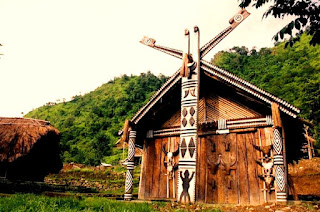UNDERNEATH THE BAZA
It was the winter of 2003 in the outskirt of Kohima, the capital district of Nagaland. A few months earlier, I had read about the first Indian woman astronaut who died in her spacecraft while returning to Earth from a trip to the space. Her story kept reverberating in my head for months. One night, dressed with almost everything a real astronaut wears, I found myself strapped to a comfortable seat facing towards the sky. It looked like the cockpit of a real space craft with all the buttons and screens just as I saw on a magazine. But I had not a clue what was happening. The whole thing was shaking and it sounded like I was going to be launched up in the horizon. It was exciting but I thought, “Where is that unusual sound of kitchen utensils coming from?” It didn’t seem to be just the sounds of sirens and the countdown. It was so loud and it only seemed to get louder, until I finally got woken up to my father banging the utensils in the kitchen next to my room, wh



